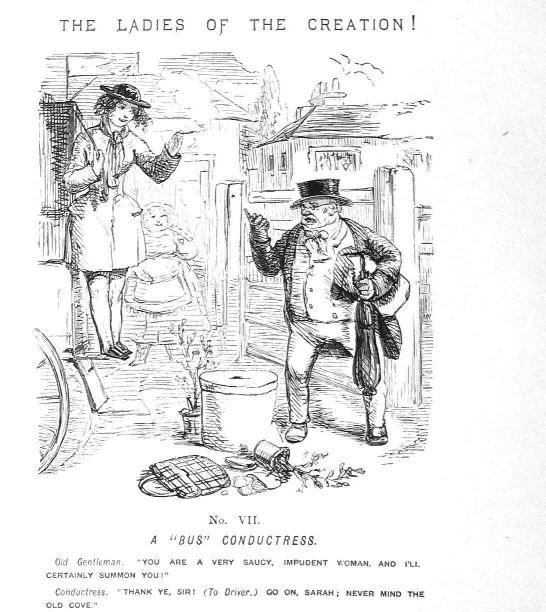Alas! It was snuffed and extinguished in one.
In Jane Austen's time, snuffing a candle meant "to free from the snuff, by pinching or cutting this off, or removing it with a special instrument" (OED). This allowed the candle to burn brighter.
Alas! It was snuffed and extinguished in one.
In Jane Austen's time, snuffing a candle meant "to free from the snuff, by pinching or cutting this off, or removing it with a special instrument" (OED). This allowed the candle to burn brighter.
but it was japan, black and yellow japan of the handsomest kind
Japan was a black varnish imported from Japan that had an exceptional hard finish. Japan could also refer to a piece done in the Japanese style that was "varnished, and adorned with painted or raised figured" (OED).
housemaids
“Originally: a female domestic servant, esp. one in charge of the reception rooms and bedrooms. Now more generally: a woman who is employed to perform various domestic tasks, esp. cleaning, in a person's home, a hotel, etc” (OED).
dishabille
"The state of being partly undressed, or dressed in a negligent or careless style; undress" (OED).
supposititious
"Put by devious means in the place of another; fraudulently substituted for the genuine thing or person" (OED).
housekeeper
"A person, traditionally the female head of a household, who manages the running of a household" (OED).
In this context, housekeeper means the female head of the household, typically the wife of the homeowner, not a domestic servant.
cravats
“A long, narrow piece of linen, muslin, or other fine cloth, worn around the neck and either tied under the chin in a knot or bow with long flowing ends” (OED). 
portionless
“Without a dowry” (OED).
jade
"A term of reproach to women" (Regency Assembly Press).
to be introduced to her
"To make known in person, esp. in a formal manner, with announcement of name, title, or other identification" (OED).
fag
"Weariness, toil, fatigue, drudgery" (OED).
tenour
"The general sense or meaning, drift, import, effect" (OED).
archness
"Cleverness, good humoured slyness" (OED).
All the mutually agreed upon definitions have as their purpose: to protect and maintain the ongoing ignorance of your divinity, by preoccupying you with your independent status and its improvement with the promise that you can become a presence of excellence without a Source.
Define "throwback".
fickleness
Inconstancy, changeableness.
honours of her house
"The duties of house." As the only female family in residence at Northanger Abbey, Miss Tilney would be expected to act as the hostess.
This duty would normally be performed by the wife of the household, and in her absence, the eldest daughter or at times, the sister of the host.
superciliousness
The quality or character of being supercilious; haughty, proud, arrogant or contemptuousness.
particulars
Details.
want of
Lack of/ absence of.
spirits
Enthusiasm/enjoyment.
did not admit of a doubt
Could not be doubted.
ease
Comfort.
to greater advantage
To see someone "to greater advantage" would be to see them in a more positive way.
canting
"The action of tilting, sloping, turning over or about" (OED).
cozening
"To cheat, defraud by deceit" (OED).
Nonconformist−Parsons
A clergyman who (especially after the Act of Uniformity of 1662) who is separated from the Church of England; another way to say a Protestant Dissenter (OED).
Conventicles
"An assembly, a meeting; esp. a regular meeting of any society, corporation, body, or order of men" (OED).
Jew
“As a name of opprobrium applied to a grasping or extortionate person (whether Jewish or not) who drives hard bargains.” Often used as an offensive and derogatory word as so in the context. (OED)
Am I a Jew, a Turk?
Jews are considered tradesmen who have no faith (Grose). Turks are considered cruel, coldhearted men (Grose).
forelock
Regarded as a piece of a horse-harness (OED).
To take fortune, also regarded as time, by the forelock means to sieze an opportunity. (Oxford Dictionaries)
Healths
The term “healths," refers to to an alcoholic beverage, the act of drinking, and the act of toasting while drinking. (OED)
Philander
A male lover (OED).
Cavalier
A term for a 17th century Royalist; “a name given to those who fought on the side of Charles I in the war between him and the Parliament” (OED).
Swain
A servant or an attendant, usually male. (OED)
Coxcombs
Noun. A fool, simpleton (obs.); now, a foolish, conceited, showy person, vain of his accomplishments, appearance, or dress; a fop; 'a superficial pretender to knowledge or accomplishments'. (OED)
Sempstresses
Alternate word for seamstress. (OED)
Mercers
Noun. A person who deals in textile fabrics, esp. silk, velvet, and other fine materials; spec. a member of the worshipful Company of Mercers, a livery company of the City of London. Also (occasionally): a dealer in haberdashery. (OED)
beseech
v. to beg ernestly for, entreat (a thing). (Oxford English Dictionary)
By George
Phrase. Used as exclamation or mild oath. (OED)
wooing
Fiddle−stick
obdurate
‘quality of life’
(QOL)- general well being of individuals and societies. QOL has a wide range of contexts including fields of international development, healthcare, politics, and employment (Google/Wikipedia)
Oyster−Woman
A woman who gathers, cultivates and/or sells oysters.
Oyster-women were associated with bawds, whores, and beggar women that took part in a 1637 riot in a church that made so much noise that it drowned out the service. They were described by a royalist newspaper as a carnivalesque mob.
Cherubin
A conventional representation of an angel. (OED)
Cozen’d,
To cheat, defraud by deceit. (OED)
Jack−sauce
"Jack-sauce" n. Obs. a saucy or impudent fellow. (OED online)

scruples
A thought or circumstance that troubles the mind or conscience; a doubt, uncertainty or hesitation in regard to right and wrong, duty, propriety, etc.; esp. one which is regarded as over-refined or over-nice, or which causes a person to hesitate where others would be bolder to act.
Rakeshame
A disreputable or dissolute person; a rogue
censorious
censorious (adj.) - severely critical, judgmental, condemnatory
Jilts
A woman who has lost her chastity; a harlot or strumpet; a kept mistress
Hackney
A woman that hires her person, a prostitute

Baud
One employed in pandering to sexual debauchery; a procurer or procuress; orig. in a more general sense, and in the majority of passages masculine, a ‘go-between,’ a pander; since c1700 only feminine, and applied to a procuress, or a woman keeping a place of prostitution; a woman in charge of a brothel

Tittle−Tattle
An act or spell of petty talk; an item of small talk or gossip
Wag, an arch Wag
Wag (n.) - a joker, mischievous person
arch Wag (n.) - an extreme joker
Bill Ignoramus
Legal term also called a bill "not found." Meaning there is insufficient evidence of charges brought forth - the indictment is dropped and the accused is released.
Renegado
"A person who deserts, betrays, or is disloyal to an organization, country, or set of principles; a turncoat, a traitor" (OED).
Commonwealthsmen
"good citizen, patriot"(OED).
Infantas
"A daughter of the king and queen of Spain or Portugal; spec. the eldest daughter who is not heir to the throne." (OED) is the literal meaning. However, it can be "[a]pplied analogously or fancifully to other young ladies." (OED)
Harangue
"A speech addressed to an assembly; a loud or vehement address, a tirade; formerly, sometimes, a formal or pompous speech" (OED).
Alderman Draw−tooth
Alderman meaning a man and "Draw-tooth" was in reference to the action of getting his teeth pulled.
Billet−Doux
From French, Billet-Doux means "love letter" (billet meaning "note", and doux meaning "sweet"). (OED)
Portmantle
"A case or bag for carrying clothing and other belongings when travelling; (originally) one of a form suitable for carrying on horseback," (OED).
Conclave of Cardinals
"The place in which the Cardinals meet in private for the election of a Pope," (OED).
Lanthorns
Another way to spell lantern, mainly because the lanterns glass was made of boiled horns.
Coxcomb
A fool or simpleton; a foolish, conceited, showy person, vain of his accomplishments, appearance, or dress; a fop (OED).
Felicity
The state of being happy, also referring to that which causes or promotes happiness; a source of happiness, a blessing (OED).
Railers
A person who rails, especially a person who rants, or is argumentative or abusive (OED).
Pox
Can be used to mean a curse or hex that someone wants placed upon someone or something. (Grammarist.com)
Souse
A French coin (OED). 
dead Lift
A position or juncture in which one can do no more, an extremity, ‘a hopeless exigence’ (Johnson). Usually in phrase at a dead lift. (Very common in the 17th c.: now arch. or dial.) (OED)
pick−thank
A person who curries favour with another, esp. by informing against someone else; a flatterer, a sycophant; a telltale. (OED)
‘Slife
An abbreviation of God's life (see god n. and int.Phrases 3b(a)) used as a petty oath or exclamation. (OED)
in-room” interaction provides opportunities for sociality, joint projects, and empowermentthrough sharing one’s knowledge and seeing it used for concrete success by others. Sincethis interaction occurs primarily without adult guidance or direction, it may be that thekid-organized and kid-managed aspects of these contexts—for kids of this preteen and earlyteen age—make them powerful learning contexts
Their key elements of a "good learning environment" - sociality, joint activity, sharing knowledge, concrete successes, self-guidance and organization.
I understand these elements to be related closely to those described in Lave and Wenger's discussion of LPP and apprenticeship learning
our goal isnotto provide causal explanations of transfer between videogame play and other life activities, but rather to provide a set of careful descriptions of how“in-game” activity is tangled up with activity “in-room,” and in the wider worlds of activitythat young people inhabit.
I like thinking of this game play as "tangled up with other cultural practices." I see this as multisited work, and actually helps me understand the interconnectedness of multisited work better.
“guided participation.” Guided participation has a dualmeaning: It emphasizes how adults help to structure children’s developmental tra-jectories and also the active participation by children in these processes.
Clear definition of "guided participation" - refers to both the role of the adult or teacher and the active participation of the learner
precludes
to prevent something from happening
(1) the speaker's power of evincing a personal character which will make his speech credible (ethos ); (2) his power of stirring the emotions of his hearers (pathos ); (3) his power of proving a truth, or an apparent truth, by means of persuasive arguments (logos )